How a UKIP exodus could challenge Labour's heartlands
- Published
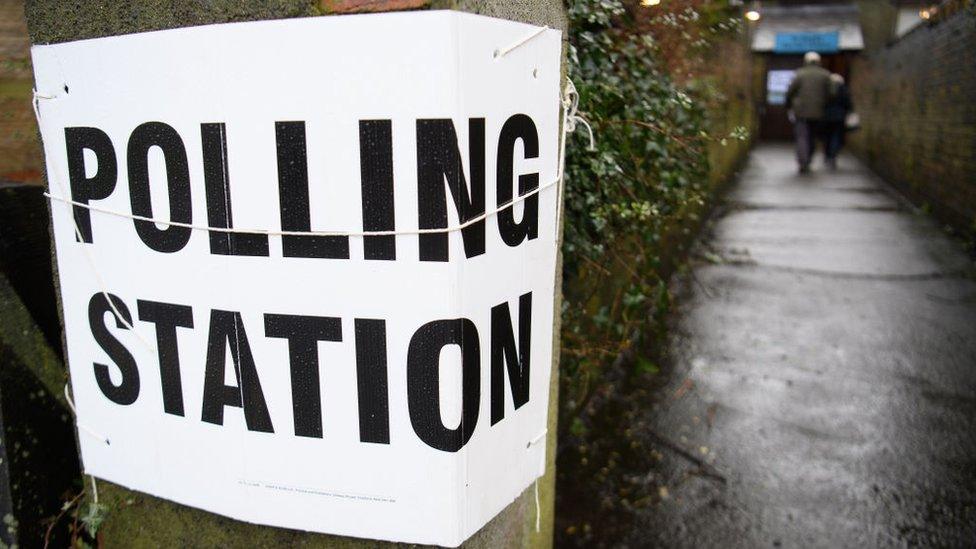
The jovial Conservative Party chairman Sir Patrick McLoughlin is deep in what should be enemy territory, the market square in Mansfield in Nottinghamshire. He bumps into one man who could have been sent by Central Office, if not central casting.
"I was brought up in a mining village, Mum and Dad always voted Labour, but I've started to see a bit of sense. You've got to trust Theresa May, haven't you?"
When the scrum moves on, he tells me he used to like UKIP but Mrs May has something about her. Jeremy Corbyn? "Wouldn't trust him as far as you could throw him."
The square is dominated by a Victorian monument, empty within because the donations ran out before they could afford to build the statue of the aristocrat it was meant to celebrate.
The stalls carry all sorts of goods, from potted plants to mobility scooters, knickers to knick-knacks. One sells the local speciality of cold whelks and hot mushy peas (strange but delicious).
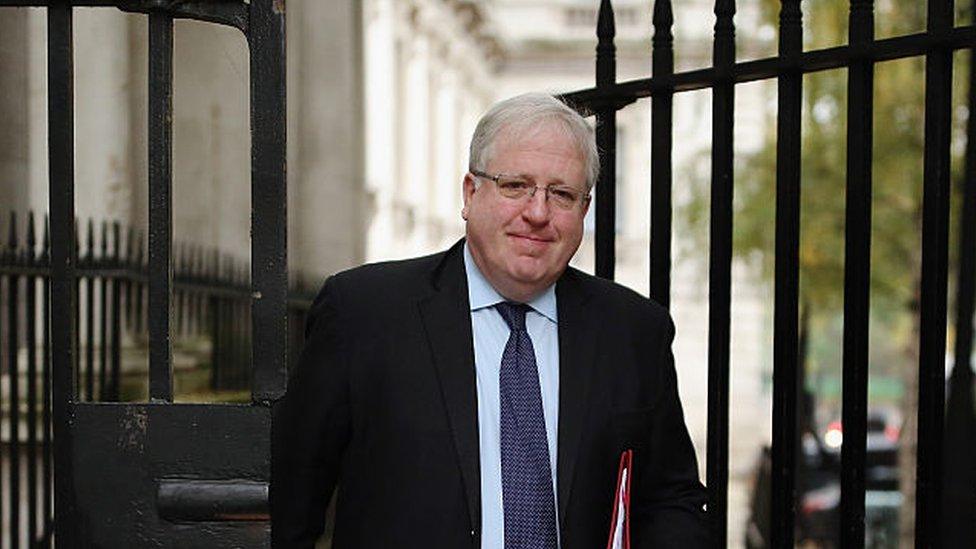
Conservative Party chairman Sir Patrick McLoughlin believes the party can take seats such as Mansfield
The Royal Horse Guards are here too, with a Panther command vehicle.
The Army officer in charge of this recruiting campaign tells me his real job is to scout ahead of a battle and report back to the top brass, to tell them if their well-laid plans will actually work on the ground.
Perhaps that is what Sir Patrick is doing, too.
He says: "Our plan is to attract people across the whole scale."
"What we've seen today is people who've voted UKIP, but we are are also seeing people who are disillusioned with Labour."
Mansfield, which has been Labour since the 1920s, is apparently still feeling the effects of the pit closures of the 1980s.
Yet it is apparently in the Conservative crosshairs.
The clue as to why is in the voting figures from the last election.
Labour has a majority of about 5,000. But add the UKIP vote to the Conservative one, and it equals a Labour wipeout.
UKIP have a stall here and tell me they are fighting to win, but Mansfield district councillor Barry Answer is forthright about the local elections.
"It's been an absolute disaster, and you could say the coffin lid is on and the parliamentary elections decide if it's going to be nailed down."
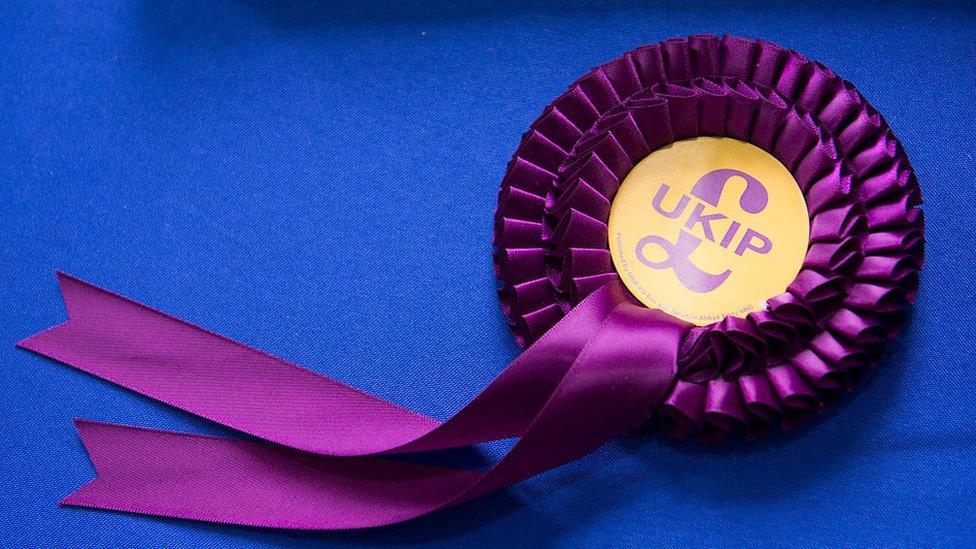
UKIP's vote slumped in the recent local elections
Why? Who is holding the Brexit baton? "For 20 years UKIP have had that in their arms tightly held, until we got the vote to leave. Theresa May is now holding the baton. The votes are going with the baton."
The co-author of the authoritative account of the rise of UKIP, Prof Matt Goodwin, says: "If you look at everything Theresa May has done since taking over - her critique of liberal elites and the 'citizens of nowhere', her rhetoric on immigration and Brexit, her support for grammar schools - all of that is straight out of the text book on how to win back traditional social conservatives."
Talking to people in the square, I come across Michael. His father fled from Poland during the War, worked in the mines and he followed his dad down the pits. He gives all credit to UKIP.
"They gave us the referendum that we needed, they did a great job, they fought the battle but lost the war."
He says nothing has got better around here in the past 40 years.
So how will he vote?
"Conservative. I used to be the old socialist Labour but Mr Corbyn and his crew are not Labour, they're communist".
Others support the party but not the leader.
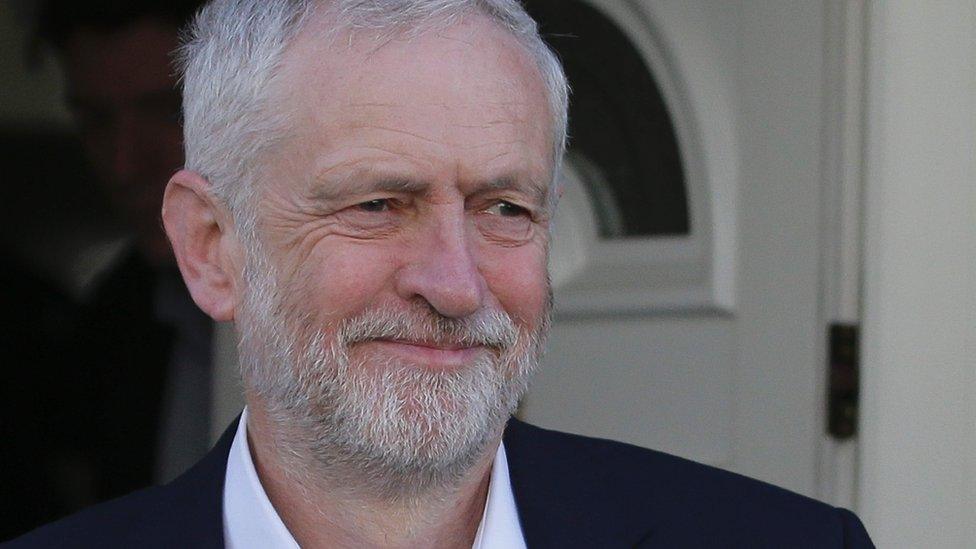
On the streets of Mansfield there are mixed opinions about Labour leader Jeremy Corbyn
"Corbyn's got good policies but I don't think his image is that good," one tells me.
"I'd like the other lot to get in, but I don't think he' s strong enough, really," says another.
And the former leader of the Labour group on Mansfield District Council, Martin Lee, is worried about the Conservative threat.
"They are going all out to win this seat: they think UKIP will collapse and they'll get the votes.
"I've voted for Jeremy Corbyn twice, he's got to get out there and make a big difference over the next four weeks.'
If Mrs May can capture seats such as Mansfield it will be critical, not just for the election result but the shape of British politics for years to come.
- Published5 May 2017
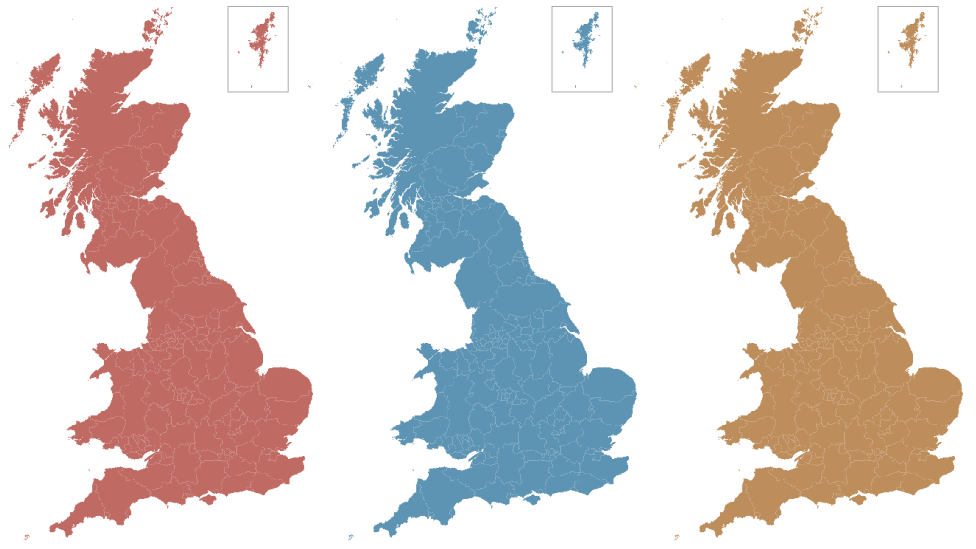
- Published4 May 2017